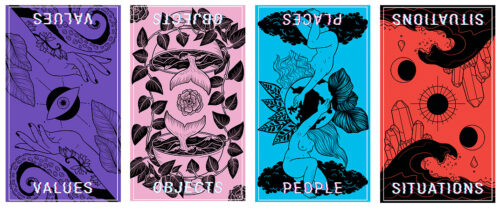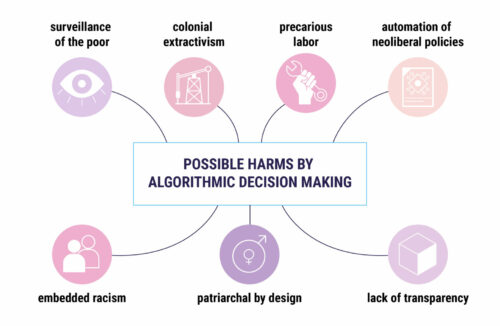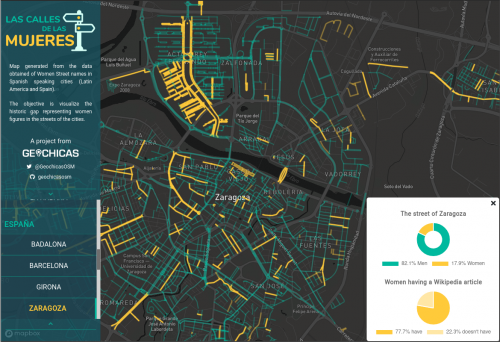The Oracle for Transfeminist Technologies

this oracle is a hands-on card deck designed to help us collectively envision and share ideas for transfeminist technologies from the future.


this oracle is a hands-on card deck designed to help us collectively envision and share ideas for transfeminist technologies from the future.

Feministai.net is an ongoing effort, work in progress debate that seeks to contribute to the development of a feminist framework to question algorithmic decisions making systems that are being deployed by the public sector. Our ultimate goal is to develop arguments and build bridges for advocacy with different human rights groups, from women’s rights defenders to LGBTIQ + groups, especially in Latin America to address the trend in which governments are adopting A.I. systems to deploy social policies, not only without considering human rights implications but also in disregard of oppressive power relations that might be amplified through a false sense of neutrality brought by automation. Automation of the status quo, pertained by inequalities and discrimination.
The current debate of A.I. principles and frameworks is mostly focused on “how to fix it?”, instead of to “why we actually need it?” and “for whose benefit”. Therefore, the first tool of our toolkit to question A.I. systems is the scheme of Oppressive A.I. that we drafted based on both, empirical analysis of cases from Latin America and bibliographic review of critical literature. Is a particular A.I system based on surveilling the poor? Is it automating neoliberal policies? Is it based on precarious labor and colonial extractivism of data bodies and resources from our territories? Who develops it is part of the group targeted by it or its likely to restate structural inequalities of race, gender, sexuality? Can the wider community have enough transparency to check by themselves the accuracy in the answers to the previous questions?
What is a feminist approach to consent? How can it be applied to technologies? Those simple questions were able to shed light on how limited is the individualistic notion of consent proposed in data protection frameworks.

Proyecto colaborativo de Geochicas para producir un mapa a partir de las calles que cuenten con un nombre de alguna mujer en Latinoamérica y España. Esta propuesta busca enlazar y generar contenidos en OSM y Wikipedia sobre mujeres destacadas.
The Design Justice Network is an international group of people and organizations committed to rethinking design processes so they center people who are often marginalized by design. We work according to a set of principles that were generated and collaboratively edited by our network.
Principle 1
We use design to sustain, heal, and empower our communities, as well as to seek liberation from exploitative and oppressive systems.
Principle 2
We center the voices of those who are directly impacted by the outcomes of the design process.
Principle 3
We prioritize design’s impact on the community over the intentions of the designer.
Principle 4
We view change as emergent from an accountable, accessible, and collaborative process, rather than as a point at the end of a process.
Principle 5
We see the role of the designer as a facilitator rather than an expert.
Principle 6
We believe that everyone is an expert based on their own lived experience, and that we all have unique and brilliant contributions to bring to a design process.
Principle 7
We share design knowledge and tools with our communities.
Principle 8
We work towards sustainable, community-led and -controlled outcomes.
Principle 9
We work towards non-exploitative solutions that reconnect us to the earth and to each other.
Principle 10
Before seeking new design solutions, we look for what is already working at the community level. We honor and uplift traditional, indigenous, and local knowledge and practices.